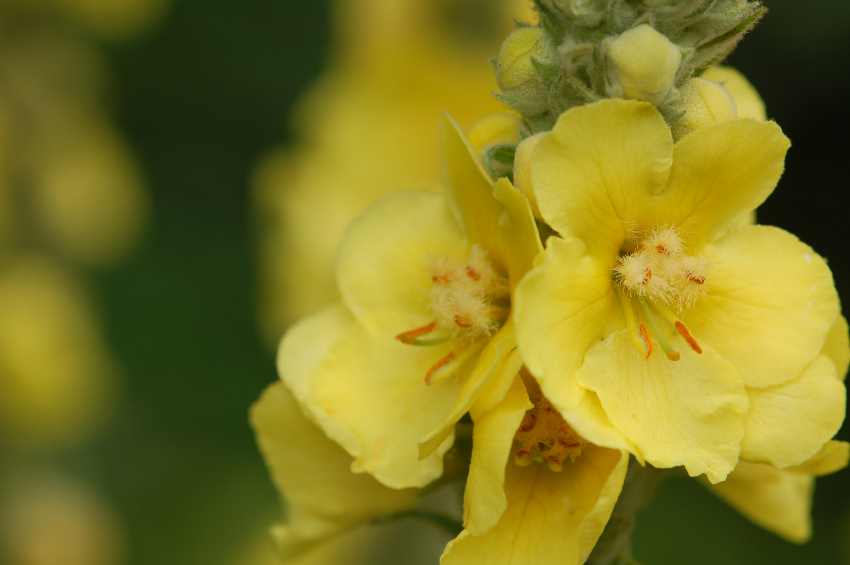Which herbal medicines work against the flu? A scientific review provides answers
09/06/2019 / By Evangelyn Rodriguez

Before the dawn of pharmaceuticals, people relied on medicinal plants to relieve symptoms of various ailments and improve overall health. Today, herbal medicines are on the rise once again, with their powerful chemical components becoming the focus of interest of many scientific studies. Besides being effective, these naturally occurring compounds cause very few adverse effects. Herbal medicines can be used for a variety of applications, such as antibacterial, anti-fungal, anti-viral, and even anti-tumor agents. In an article published in The American Journal of Chinese Medicine, researchers from The Ohio State University systematically reviewed several herbal extracts which, according to studies, exhibit anti-viral activities against the influenza virus. They concluded that these natural medicines have the potential to be developed into modern anti-viral agents that can stop the spread of this rapidly mutating virus more effectively than conventional medications.
Herbal medicines can stop the influenza virus from replicating inside its host
The researchers noted that for years, the influenza virus has remained a consistent threat to the well-being of a variety of species on the planet. Due to its high mutation rate, the influenza virus has rapidly and continuously evolved and has now generated new strains that are resistant to anti-viral medications commonly used today. This increased resistance has compelled the scientific community to explore other compounds that have anti-viral effects against the influenza virus.
Numerous herbal extracts have shown anti-viral activity against different kinds of viruses, including influenza. These herbal extracts target proteins like hemagglutinin, neuraminidase, and matrix 2 proteins, which are essential for viral replication. Hemagglutinin is a surface protein responsible for viral attachment to its target cell. Neuraminidase, meanwhile, is necessary for the initiation of influenza virus infection. Matrix 2 proteins facilitate the migration of viral RNA through its membrane into the host cell.
Some studies have also reported that certain herbal extracts can inhibit the replication of oseltamivir-resistant strains. Oseltamivir is an anti-viral neuraminidase inhibitor (Tamiflu) used to treat influenza infections. Herbal extracts that contain compounds called pentacyclic triterpenes have exhibited higher anti-viral activity than oseltamivir. Due to the potency of these herbal medicines, the researchers believe they can be used to target various host-cell signaling pathways used by the influenza virus during replication.
Based on numerous findings, the researchers concluded that herbal anti-viral compounds could inhibit the influenza virus and have the potential to be developed into modern anti-viral medicines.
Common herbal remedies that combat influenza-related colds and flu
Fighting the influenza virus naturally isn’t an impossible task. There are many herbs commonly used in the kitchen that can alleviate the symptoms of this viral infection. These medicinal herbs work well against the influenza virus and can even shorten the duration of colds and flu. Here are some common herbs that you can use at home when you’re down with influenza. (h/t to TheHerbalAcademy.com)
- Garlic has anti-viral, antibacterial, and antiseptic properties.
- Onion can alleviate coughs; raw onion can keep the respiratory tract open.
- Ginger has antimicrobial and anti-inflammatory properties. Ginger is great for colds and flu and for treating nausea and vomiting.
- Sage, also called the mouth and throat plant, is known for its antiseptic, astringent, and carminative properties. Sage helps with sore throats, coughs, and sinus congestion.
- Thyme has antibacterial, anti-viral, expectorant, and astringent properties; can be used to treat respiratory infections, coughs, and flatulence.
- Cayenne has analgesic, antimicrobial, carminative, and diaphoretic properties; can be used as an expectorant and stimulant. Cayenne helps prevent and/or shorten the duration of colds and flu. It also warms the body and dispels coldness.
Medicinal herbs have remarkable therapeutic properties. To use them for colds, flu, or other ailments, make herbal teas, infusions, and syrups with your favorite herbs. You can also add them to lemonades and honey or inhale their essence by placing your chosen herbs in a bowl and pouring boiling water over them.
Sources include:
Tagged Under: alternative medicine, anti-inflammatory, anti-viral, Antimicrobial, antiviral medications, cayenne, clean food, coughs, disease treatments, drug-resistant viral strains, food cures, food is medicine, functional food, garlic, ginger, herbal medicine, herbal medicines, herbal remedies, Herbs, immune system, influenza, influenza virus, medicinal plants, natural cures, natural medicine, onion, oseltamivir, plant compounds, remedies, research, respiratory tract infections, sage, sinus congestion, sore throat, thyme, viral mutation, viral replication
RECENT NEWS & ARTICLES
COPYRIGHT © 2017 NATURAL CURES NEWS



















